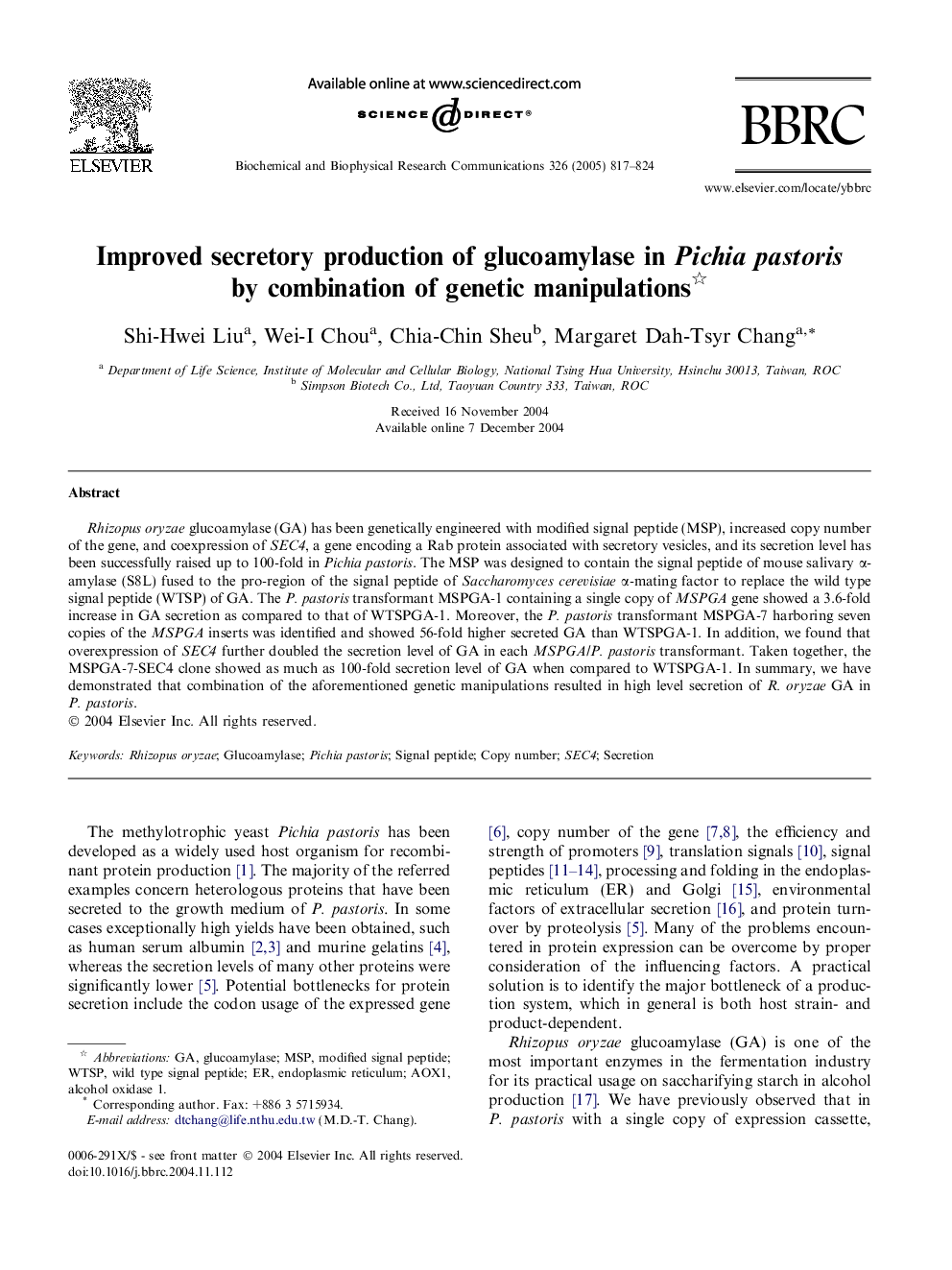| Article ID | Journal | Published Year | Pages | File Type |
|---|---|---|---|---|
| 10771994 | Biochemical and Biophysical Research Communications | 2005 | 8 Pages |
Abstract
Rhizopus oryzae glucoamylase (GA) has been genetically engineered with modified signal peptide (MSP), increased copy number of the gene, and coexpression of SEC4, a gene encoding a Rab protein associated with secretory vesicles, and its secretion level has been successfully raised up to 100-fold in Pichia pastoris. The MSP was designed to contain the signal peptide of mouse salivary α-amylase (S8L) fused to the pro-region of the signal peptide of Saccharomyces cerevisiae α-mating factor to replace the wild type signal peptide (WTSP) of GA. The P. pastoris transformant MSPGA-1 containing a single copy of MSPGA gene showed a 3.6-fold increase in GA secretion as compared to that of WTSPGA-1. Moreover, the P. pastoris transformant MSPGA-7 harboring seven copies of the MSPGA inserts was identified and showed 56-fold higher secreted GA than WTSPGA-1. In addition, we found that overexpression of SEC4 further doubled the secretion level of GA in each MSPGA/P. pastoris transformant. Taken together, the MSPGA-7-SEC4 clone showed as much as 100-fold secretion level of GA when compared to WTSPGA-1. In summary, we have demonstrated that combination of the aforementioned genetic manipulations resulted in high level secretion of R. oryzae GA in P. pastoris.
Related Topics
Life Sciences
Biochemistry, Genetics and Molecular Biology
Biochemistry
Authors
Shi-Hwei Liu, Wei-I Chou, Chia-Chin Sheu, Margaret Dah-Tsyr Chang,
